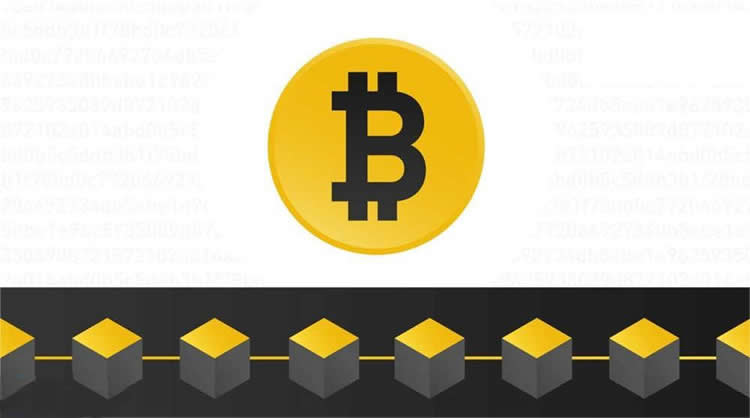A quick look at blockchain technology: Is it just Bitcoin?
- WBOYWBOYWBOYWBOYWBOYWBOYWBOYWBOYWBOYWBOYWBOYWBOYWBforward
- 2024-01-24 20:27:181567browse
It is often heard that blockchain technology and Bitcoin are often mentioned. This may be difficult for newcomers in the encryption field to understand, which leads to some people referring to Bitcoin when talking about blockchain technology. And when some people talk about cryptocurrencies, they are referring to blockchain. Is this blockchain technology exactly Bitcoin? Actually no, the two of them are related, but they are not equated. Blockchain technology is included in Bitcoin, a manifestation of Bitcoin knowledge blockchain technology. The editor below will explain the block in detail. The relationship between blockchain technology and Bitcoin.

Is blockchain technology Bitcoin?
Blockchain technology is not the same as Bitcoin. Bitcoin is just the first application case of blockchain technology. Blockchain is a broader technology concept that can be used to implement a variety of applications, not just digital currencies.
Blockchain is a distributed and decentralized digital ledger mainly used to record transactions. It is similar to a digital version of a paper ledger and is responsible for recording and verifying the accuracy of transaction records.
Blockchain is a linear chain of blocks connected and secured by cryptographic credentials. In addition to financial operations, blockchain technology can be applied to other activities. In cryptocurrency, blocks are used to permanently record confirmed transactions.
Bitcoin is the world’s first cryptocurrency and the most well-known cryptocurrency in the market. It was created in 2009 by a developer or development team under the pseudonym Satoshi Nakamoto. The main purpose of creating Bitcoin is to build an independent and decentralized electronic payment system based on digital proofs and cryptography.
Bitcoin is one of the most well-known cryptocurrencies, but it is not unique. There are many other cryptocurrencies on the market, each with unique properties and mechanisms. Unlike Bitcoin, some cryptocurrencies do not have their own blockchain but are built on an existing one, while others are built incrementally from scratch. Since the Bitcoin protocol is open source, anyone can view and copy its code. Developers from all over the world have contributed to the development of the Bitcoin project.
What is the application principle of blockchain in Bitcoin?
The main principles of blockchain application in Bitcoin include distributed ledgers, blocks, transactions and consensus mechanisms.
1. Distributed ledger:
The blockchain is a distributed ledger that records all transactions that occur in the Bitcoin network. This ledger is kept on every node of the network rather than maintained by a centralized organization. Each node has a copy of the entire ledger.
2. Block:
A block is a data unit on the blockchain, containing transaction records within a certain time range. Each block contains a hash value that depends on the contents and hash of the previous block. One of the core features of blockchain is the chain connection of blocks, which ensures the non-tamperability of data.
3. Transaction:
Bitcoin transactions are recorded on the blockchain, including information such as the sender, receiver, and transaction amount. These transactions are packaged into blocks and added to the blockchain through a consensus mechanism.
4. Consensus mechanism:
Bitcoin adopts the Proof-of-Work (PoW) consensus mechanism. Miners compete to generate new blocks by solving mathematical puzzles and are rewarded with Bitcoins. This process ensures that the creation of new blocks is fair and requires consensus from a majority of nodes in the network.
5. Decentralization:
The decentralized nature of blockchain means that there is no central authority to control the entire network. The decentralized nature of Bitcoin prevents it from being controlled by a single institution or government.
6. Encryption algorithm:
Bitcoin uses cryptographic hash functions, such as SHA-256, to ensure data security. The hash value of each block contains information from the previous block, thus forming a continuously connected chain.
7. Mining rewards:
In order to encourage miners to maintain and operate the network safely, Bitcoin has introduced mining rewards. Miners obtain newly issued Bitcoins and transaction fees by successfully mining, creating new blocks and adding them to the blockchain.
The above is the detailed content of A quick look at blockchain technology: Is it just Bitcoin?. For more information, please follow other related articles on the PHP Chinese website!
Related articles
See more- How to implement Bitcoin address in Node.Js
- What is blockchain technology and what are its characteristics
- Is the SEC suspected of market manipulation? Industry experts' views on fake news about Bitcoin ETF approval
- Bitcoin spot ETF could trade at 8% initial premium: ETF father
- Are there any successful cases of large Bitcoin transactions? What are the key points to pay attention to when making large Bitcoin transactions?

